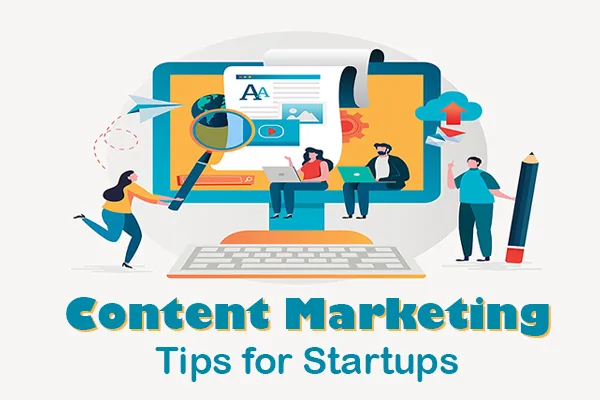4 Keys to Developing and Implementing a New Contract Management System
Effective contract management is critical in ensuring organizations’ smooth functioning and success in today’s dynamic business landscape. With the increasing complexity of contracts and the need for transparency and compliance, a robust contract management system has become an indispensable tool.
Such a system streamlines processes enhances productivity, and minimizes contract risks, enabling businesses to operate more efficiently and effectively. However, developing and implementing a new contract management system takes time and effort.
It requires careful planning, meticulous execution, and a thorough understanding of organizational requirements and objectives. By investing time and resources into this endeavor, organizations can unlock numerous benefits and gain a competitive edge in today’s highly competitive marketplace.
4 Keys to Develop and Implement
In this article, we will explore four essential factors that can assist organizations in successfully navigating the process.
- Choose the Right Technology Solution
Choosing the appropriate technology solution is crucial when developing a new contract management system. Given the many available options, organizations must diligently assess and compare different solutions to find the optimal fit for their specific requirements. Whether opting for standalone contract automation software or contemplating integration with existing enterprise resource planning (ERP) systems, a comprehensive evaluation is indispensable.
During the selection process, organizations should consider vital factors such as scalability to accommodate future growth, user-friendliness for technical and non-technical users, and robust security features to safeguard sensitive contract data.
Furthermore, integration capabilities with other systems like CRM or document management systems can significantly enhance operational efficiency and data accuracy. Engaging IT professionals or consultants with expertise in contract management systems is advisable, as their insights and guidance can prove invaluable.
- Engage Stakeholders and Obtain Buy-In
The successful implementation of a contract management system extends beyond technology and necessitates the active engagement and support of critical organizational stakeholders. The involvement of stakeholders from various departments, including contract managers, procurement professionals, and IT experts, is crucial to ensure that the new system effectively addresses their specific requirements and challenges.
Early engagement of stakeholders allows organizations to gather invaluable insights and perspectives. It creates an opportunity to address concerns, clarify expectations, and identify potential obstacles to adoption.
By actively involving stakeholders, organizations can foster a sense of ownership and cultivate a collaborative environment that facilitates the successful implementation of the new contract management system.
- Plan for Seamless Integration and Data Migration
To ensure a smooth transition to the new contract management system, organizations must prioritize integrating the system with existing systems and meticulously migrating data from the old system. A unified and comprehensive view of contract information can be established by combining the new contract management system with crucial systems like customer relationship management (CRM) or enterprise content management (ECM) systems, improving operational efficiency and decision-making.
Data migration is a pivotal aspect of the implementation process as it involves transferring contract data, associated documents, and relevant metadata from the old system to the new one. This process requires meticulous attention to detail to ensure data integrity and accuracy. Careful data mapping, where information from the old system is accurately matched with the appropriate fields in the new system, is crucial for a successful migration. Organizations should also establish validation mechanisms to verify the accuracy and completeness of the migrated data.
Thorough testing and validation procedures should be implemented before the full-scale launch of the new contract management system. It will ensure that all functionalities are working as expected and that any issues or discrepancies are identified and addressed promptly.
- Establish Effective Change Management Processes
Implementing a new contract management system involves more than technical considerations and requires effective management of processes, workflows, and organizational culture changes. Organizations should establish robust change management processes that prioritize the human factor to ensure a successful transition.
A clear and comprehensive communication plan is pivotal in managing change. It should utilize various communication channels to inform employees about the upcoming changes, highlight the new system’s benefits, and emphasize how it aligns with the organization’s overall goals and objectives. Regular updates, training sessions, and open forums can address questions, alleviate concerns, and generate enthusiasm and support from employees at all levels.
Providing the necessary support and resources is essential for a seamless transition. Monitoring and evaluating the change management process is also crucial. Collecting feedback, assessing user satisfaction, and measuring the system’s impact on contract management processes can provide valuable insights for continuous improvement.
Conclusion
A new contract management system’s development and implementation are significant projects requiring careful preparation and execution. By incorporating the four factors above, organizations can position themselves for success. A thoughtfully designed contract management system has the potential to boost efficiency, mitigate risks, and significantly contribute to the overall success of an organization’s contract management processes.
Author Bio:
Qurat-ul-Ain Ghazali, aka Annie, is the growth manager at Contractbook and looks after all the organic channels. She has been with tech startups and scaleups for a couple of years with a B2B focus. You can find her socializing, traveling, indulging in extreme sports, and enjoying the local desserts when she is not working.







